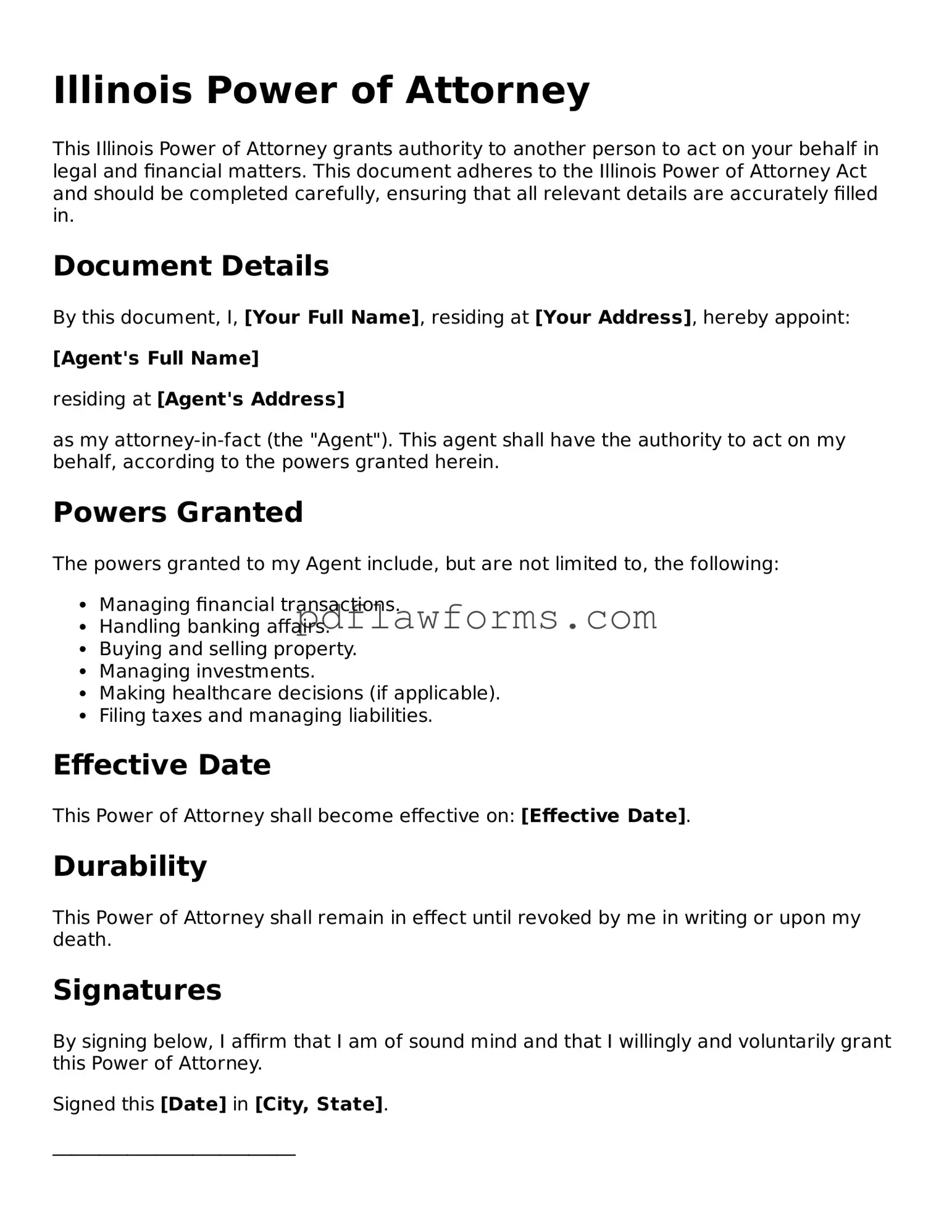Power of Attorney Form for the State of Illinois
The Illinois Power of Attorney form is a legal document that allows you to appoint someone to make decisions on your behalf when you are unable to do so. This important tool ensures that your wishes are respected in matters of health care and financial decisions. Ready to take control of your future? Fill out the form by clicking the button below.
Make My Document Online

Power of Attorney Form for the State of Illinois
Make My Document Online
You’re halfway through — finish the form
Edit and complete Power of Attorney online, then download your file.
Make My Document Online
or
⇩ Power of Attorney PDF
